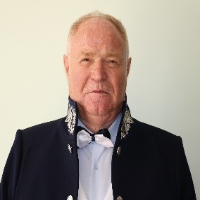
Former Selectia Research Institute of Field Crops, Ukraine
Title : Sustainable management of soil organic matter for resilient agriculture in the Republic of Moldova
Abstract:
Soil organic matter is the integral index of soil fertility, influencing agrophysical, agrochemical and biological properties of the soil (soil quality, soil health). Soils of good quality or in good health can provide social and ecological services like: filtering of potable water; carbon sequestration for reducing GHG emissions; high productivity and food of excellent quality; good conditions for beneficial entomofauna, including polinators etc. Industrial model of agricultural intensification based mainly or nonrenewable sources of energy and their derivates (mineral fertilizers, pesticides etc.) was oriented towards higher yields and profits by neglecting the importance of soil fertility restoration. Modern agriculture shouldn’t only produce, but also to reproduce soil fertility. The dominant concept of agricultural intensification known under the name of „green revolution” couldn’t provide a sustainable and resilient agriculture.The data obtained in the long-term field experiments with crop rotations and monoculture, different systems of soil tillage, fertilization and irrigation at Selectia Research Institute of Field Crops (Balti, Republic of Moldova) are proving this statement. The duration of the experiments is more than 60 years.After the initial increase, followed by stabilization during the last 25-30 years, yields are decreasing. The numbers of droughts years during this period of time have increased, but simultaneously soil fertility has decreased.The share of soil fertility in yield formation for the majority of crops consists from 75 up to 95%. The share of nitrogen from mineral fertilizers and even organic fertilizers is only from 5 up to 25%.Nitrogen-use efficiency from mineral fertilizers is relatively low (15-30%) in the conditions of increased prices for mineral fertilizers. The emission of oxides of nitrogen is a real danger for warming the atmosphere. The same risk is for moldboard plow and using of pesticides. Respecting whole farming system allows to cut the dependence from nonrenewable sources of energy and their derivates by simultaneous cooling the atmosphere.
Biography:
Prof. Boris Boincean is the Head of the Department of Sustainable Farming Systems at the national Center for Research and Seeds production, former Selectia Research Institute of Field Crops (Balti, Republic of Moldova); former director and general director of this institute and producers association; Chief the Chair of Agroecology at Alecu Russo Balti State University; in 2023 prof. Boris Boincean was elected as member-correspondent of the Academy of Sciences of Moldova; author of more than 380 publications, including in the prestigious international editions.
